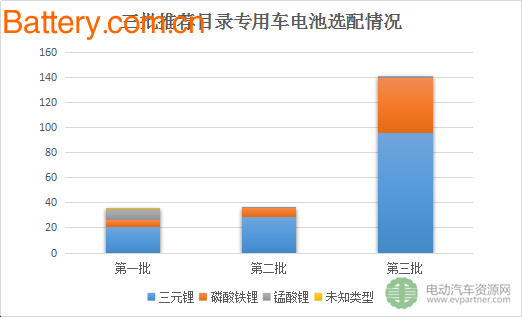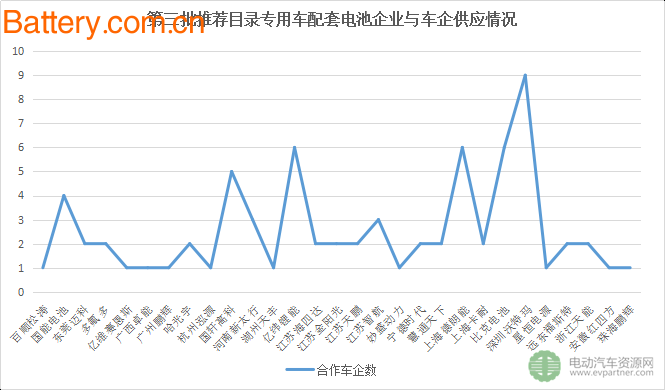On March 20, 2017, the four ministries and commissions issued the “Notice on Launching the 2016 Liquidation of New Energy Vehicle Subsidy Fundsâ€, informing them of new regulations on the conditions for non-individual users to purchase new energy vehicles to apply for government subsidies, regarding “30,000 kilometersâ€. The discussion has once again surfaced, and even examples have shown the impact of this adjustment on the company. The author noted that the announcement of the company's announcement of the company's announcement that the company's performance will be adjusted in 2016 due to the above policies, the net profit is expected to fall from 6.7-7.2 billion yuan to about 200 million yuan, a decrease of 70.15%-72.22%. . Because the main customers of new energy logistics vehicles are not on individual users, the Universiade is not a case, and most car companies will accept the test of 30,000 kilometers. As for the future choice of car companies, whether to lock individual users or continue to promote new energy logistics vehicles through operators, etc., we must provide consumers with five years and 200,000 kilometers of quality assurance. Therefore, in the choice of battery suppliers, car companies have to work hard. Relative to new energy passenger cars and buses, the industry's discussion on the safety of new energy logistics vehicles is less intense, mainly focusing on battery energy density, cycle life and cost. Under the pressure of cost reduction, both the car and the user are very sensitive to the price, so it is not necessary to elaborate; according to the new subsidy standard, we will find that the energy density has been used as a subsidy standard, and the cycle life will affect 3 The realization of 10,000 kilometers has an impact on the financial burden of enterprises during the five-year 200,000-kilometer warranty period. Looking at the three indicators of energy density, cycle life and cost, let's look at the application trend of ternary lithium, lithium iron phosphate and lithium manganate in new energy logistics vehicles. Judging from the selection of special-purpose vehicle batteries in several batches of recommended catalogues this year, the proportion of ternary material batteries has been above 50%, which is an absolute advantage; lithium iron phosphate is fluctuating, the first two batches are less, the third batch There is a certain proportion; lithium manganate, the first batch of this year's catalogue has a certain proportion, but in this year's 2-3 batches, only one model is equipped with lithium manganate. There are certain reasons for car companies to make such choices. What are the advantages and disadvantages of the three types of battery materials in terms of energy density, cycle life and price? 1) In terms of system energy density, the author has reviewed the models in the three recommended catalogues. The energy density of ternary material batteries can generally reach above 105Wh/kg, and some ternary composite materials can even reach 120Wh/kg; The lithium is relatively low, the system energy density is maintained at a level of 90 Wh/kg; the system energy density of lithium manganate is maintained at a level of 100 Wh/kg. From the above, the order of the energy density is as follows: ternary material > lithium manganate > lithium iron phosphate. 2) In terms of cycle life, the theoretical cycle life of ternary materials is about 2,000 times, lithium iron phosphate is 1500~2000 times; lithium manganate is the worst. From the theoretical value, the cycle life is ranked as follows: ternary material > lithium iron phosphate > lithium manganate. 3) It is understood that the average price of lithium manganate cathode materials in 2016 is 55,000 yuan/ton, the ternary cathode material is 145,000 yuan/ton, and the lithium iron phosphate is 120,000 yuan/ton. The advantages and disadvantages in terms of price are: lithium manganate > lithium iron phosphate > ternary lithium. Summary: Although the price of ternary cathode material is rising wildly, enterprises can effectively control the cost of batteries through technical means. At the same time, the advantages of ternary batteries relative to lithium iron phosphate in energy density and cycle life are outstanding, so the application of the battery in logistics vehicles It is more widely used; while lithium iron phosphate is a safer battery, it is widely used in passenger cars, but the disadvantages of energy density and cycle life make it difficult to exceed the ternary battery in the market share of logistics vehicles; domestic manganese There is still a gap between lithium acid battery technology and Japan, and some technical problems have yet to be broken. Therefore, lithium manganate has not become mainstream in electric logistics vehicles. Different types of batteries will have different performances. The group's ability to form will further affect the battery quality. Therefore, what kind of battery companies can get the olive branch of the car company? From the third batch of recommended catalogues, the battery companies that choose to cooperate with the car companies, on the ternary battery, choose the most cooperation with Shanghai Delangeng, BAK Battery and Yiwei Lithium; the company that chooses lithium iron phosphate More choices to cooperate with Waterma; lithium iron manganate only has a star Heng family, and only one car company chooses to cooperate with it. There are several reasons why car companies choose to cooperate with these battery companies: 1) According to the white list of battery catalogues issued by the Ministry of Industry and Information Technology, the author found that most of the above battery companies are in the white list, and only a few of them have not entered the battery white list. It can be seen that although there are car companies trying to break the battery whitelist restrictions, but for the sake of insurance, they are more inclined to whitelist enterprises. 2) When selecting a cooperative battery company, the car company attaches great importance to the company's ability to perform. On the one hand, the capacity of these battery companies can meet the needs of car companies; on the other hand, it ensures that the products can meet the current subsidy standards, such as battery systems. The mass energy density is not less than 90Wh/kg. At the same time, the vehicle enterprise should provide the quality assurance for the energy storage device, the drive motor and the motor controller of the power battery not less than 5 years or 200,000 kilometers, which will prompt the car enterprises to choose and guarantee the quality. Cooperation with battery companies with sound after-sales service systems to reduce after-sales service risks. In the fierce market competition, battery companies will also carefully choose cooperative car companies, and have the ability to recommend catalogues and market share companies to ensure the company's shipments. It can be seen from the above analysis that car companies and battery companies are two-way choices, mutual benefit and win-win results. In the future, this trend will become more obvious and market competition will become more intense. Aluminum Alloys,Aluminum Rod,Aluminum Bar,Aluminum Ingot,Aluminum Ingots Shandong Rizhaoxin Metal Products Co., Ltd. , https://www.rizhaoxinsteel.com
